Journal of PGR Pedagogic Practice
PPP Past & Current Issues
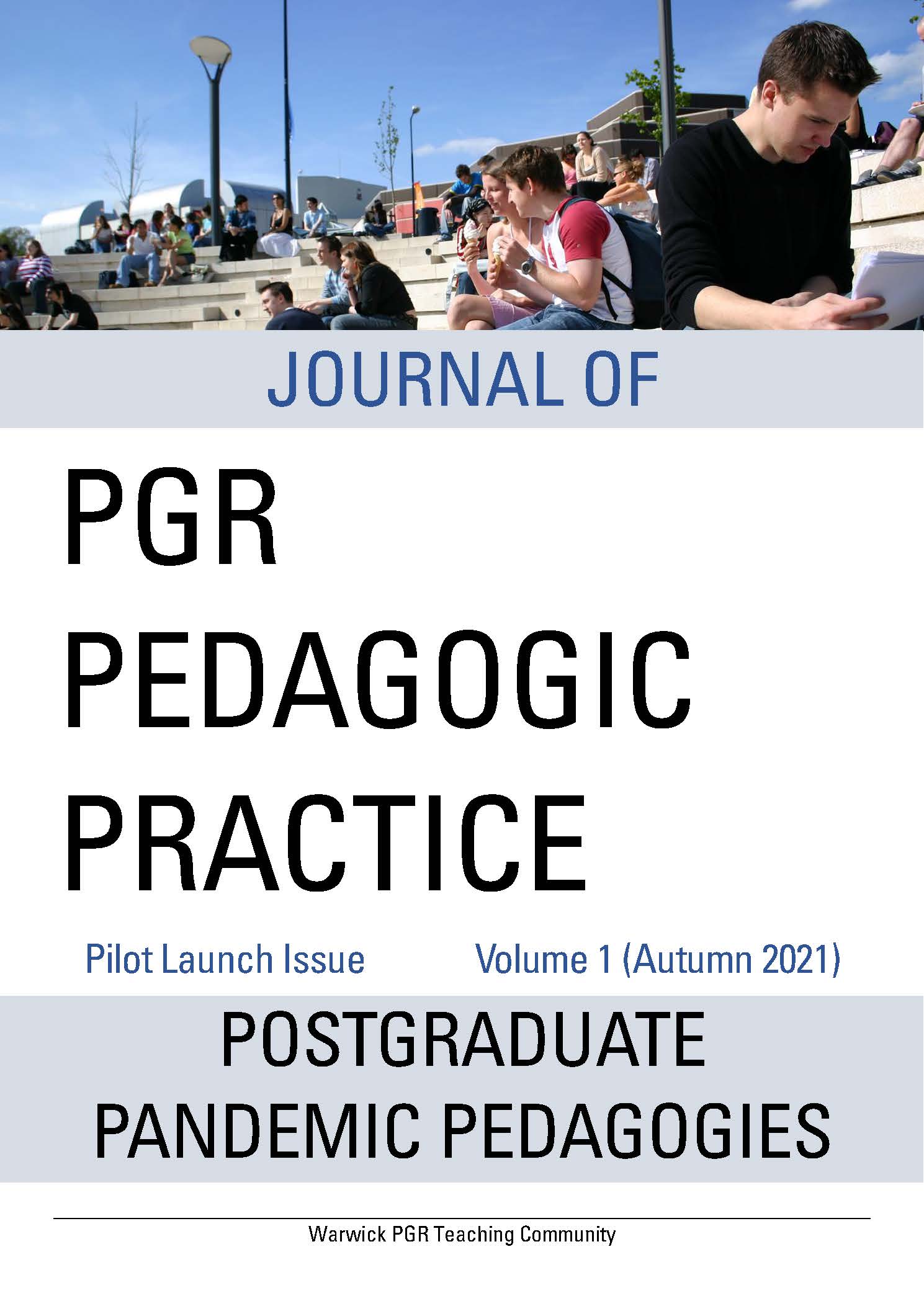
Issue 1 (2021)
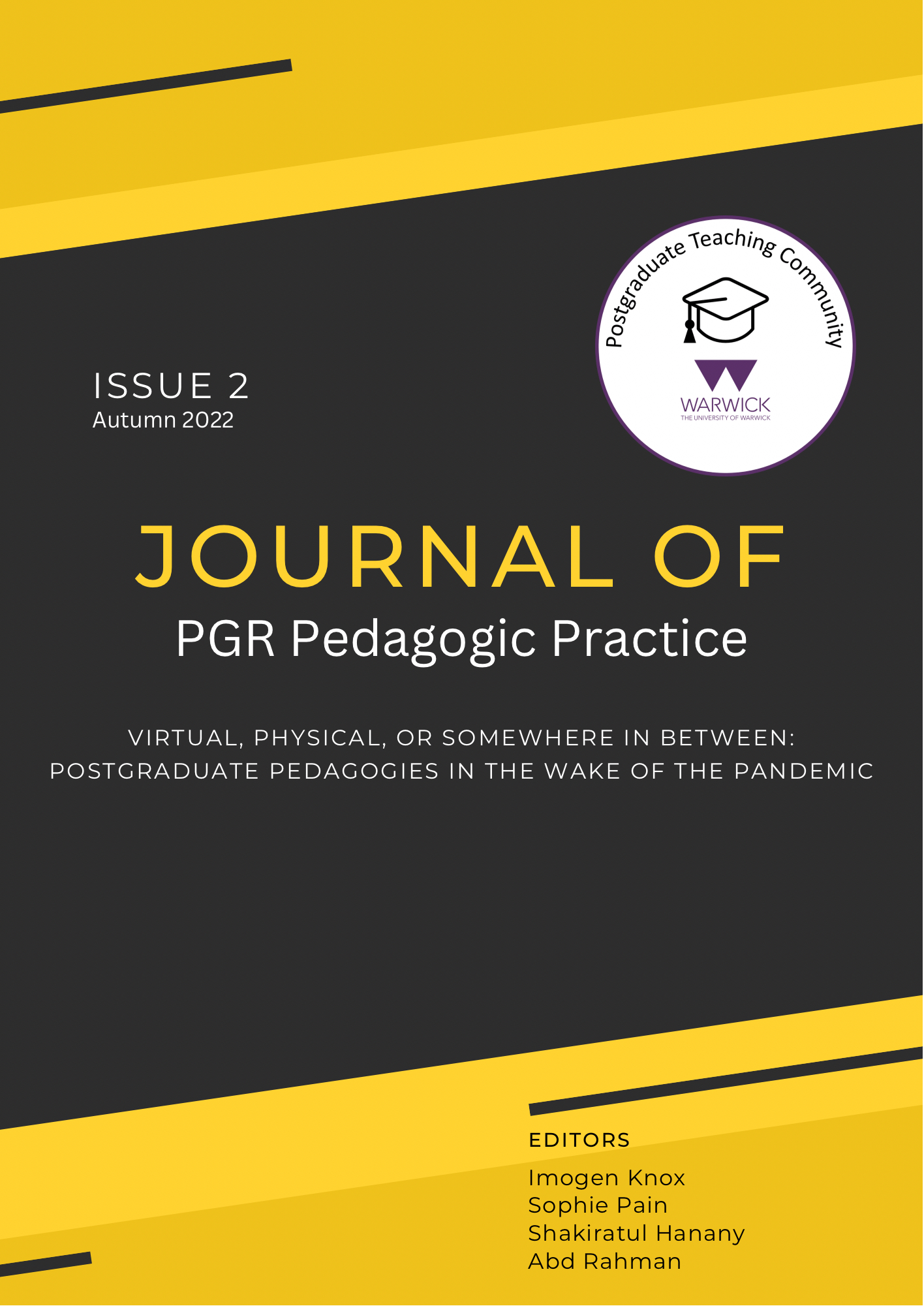
Issue 2 (2022)
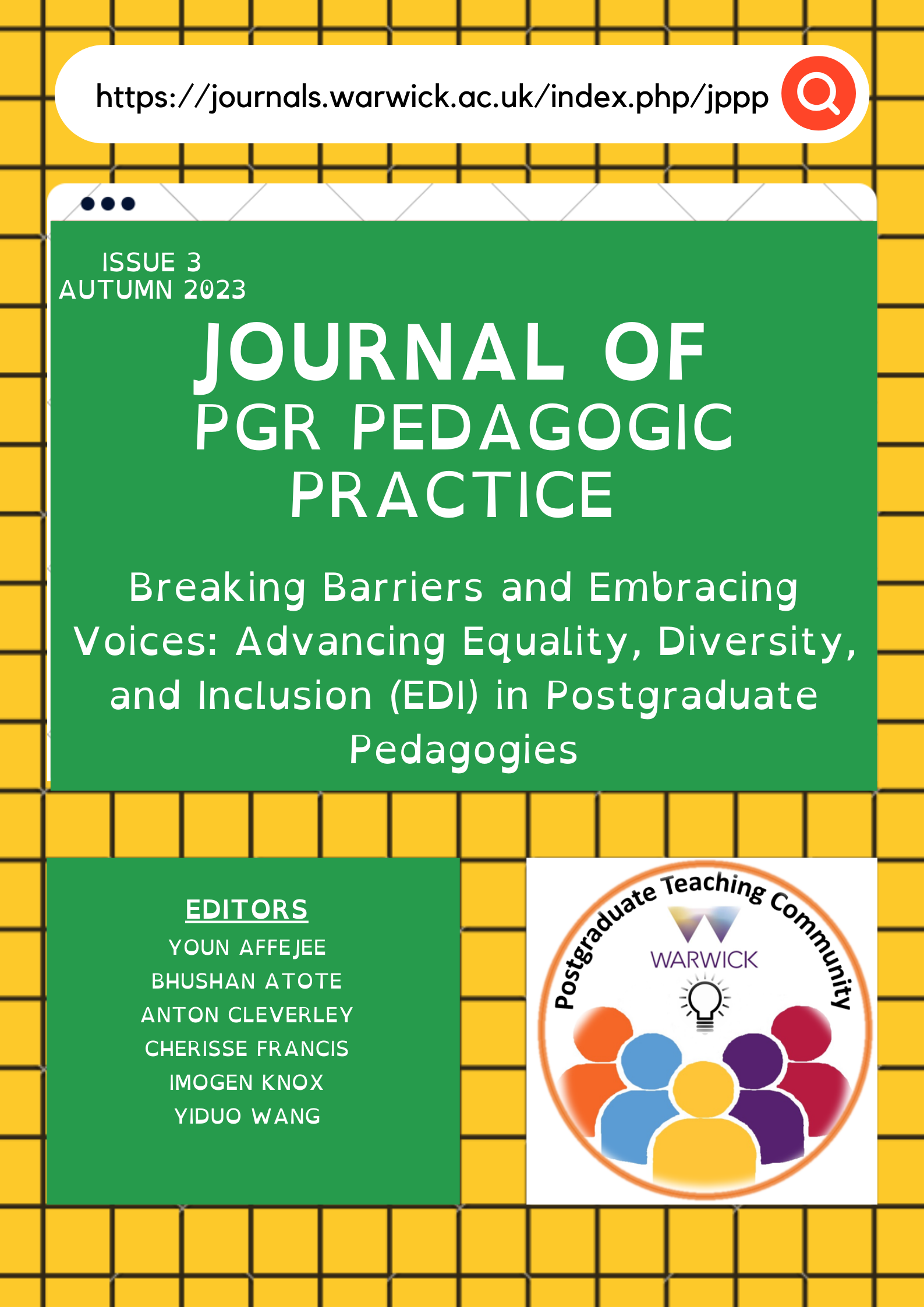
Issue 3 (2023)
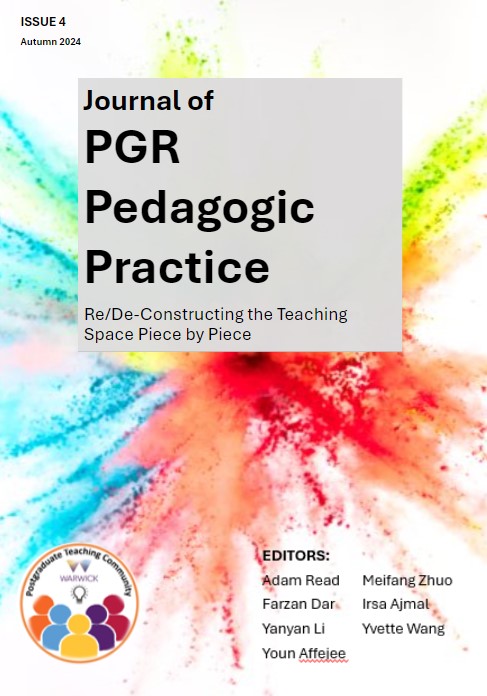
Issue 4 (2024)
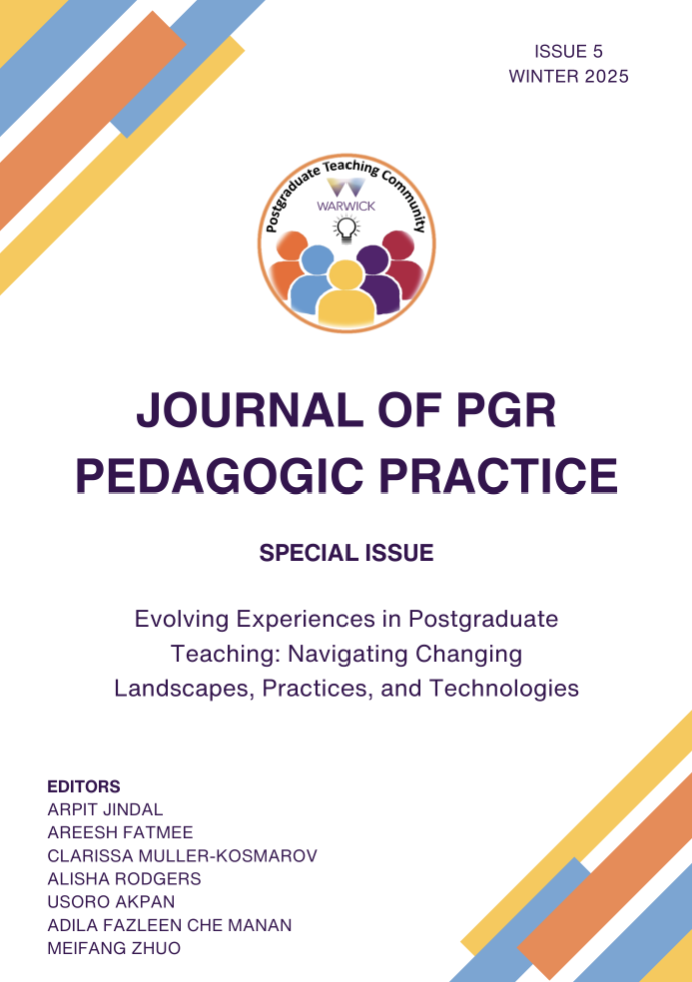
Issue 5 (2025)
JPPP: Background, Aims, and Updates
Postgraduate researchers (PGRs) often play essential roles providing tuition to students. However, PGRs occupy a liminal space between ‘staff’ and ‘student’. They often lack access and connections to wider institutional, professional, and collegiate opportunities. Conversely, many PGRs who teach who do take up such opportunities develop sophisticated and innovative pedagogies and educational philosophies. Others reflect thoughtfully on the successes and failures of their teaching practice at the coalface. There are few opportunities for PGRs to share these experiences with each other, especially across disciplines, or the wider community of practice.
Academic research has noted that the self-efficacy of PGRs who teach declines after initial training has concluded. Other research has stressed the importance of peer-learning, and of the importance of social support and networks of trust to facilitating learning in higher education. With this first edition of the journal, we plan to construct the fundamental architecture so that PGRs can begin to share their practice and evidence their ongoing commitment to their continuous professional development. We will initiate a constructive, cross-disciplinary dialogue to collectively raise the quality of teaching and enhance the outcomes of PGR experiences.
The pilot issue of the JPPP Link opens in a new windowlaunched in Autumn 2021, and featured articles which reflected primarily on teaching during the pandemic, and the particular challenges(or opportunities) presented when teaching virtually. The second issueLink opens in a new window, launched in October 2022, featured articles on the themes of PG teacher identity, innovative teaching methods and technology enhanced learning, and GTAs beyond the classroom. Our third issue, published in October 2023, sought to embrace diversity, both within the Warwick community and with regard to approaches to and experiences of teaching and learning. Our fourth instalment Link opens in a new windowcame out in November 2024, under the theme 'Re/De-Constructing the Teaching Space Piece by Piece'.
Issue 5 of the JPPP is currently underway and will be our first special issue. Titled, 'Evolving Experiences in Postgraduate Teaching: Navigating Changing Landscapes, Practices, and Technologies', this fifth instalment continues the success of the WPTC's first-ever conference (held June 2025) and seeks to explore the dynamic landscape of higher-education teaching and learning, reflecting upon the tensions, challenges, and successes relating to the shifting landscape of postgraduate teaching and the evolution of GTA's roles and practices.
JPPP: General Information
We invite both short critical reflections, and more substantial research led pieces from all PGRs and ECRs who teach in any capacity and in any discipline at Warwick and beyond. We also welcome pieces from those who support the professional development of PGRs, and those involved with pedagogy outside of the typical university teaching structure, such as student-led research projects, continued professional development. The journal invites contributions covering the role of PGRs in traditional seminar teaching and lecturing but also practical laboratories demonstrations and analytical teaching role. Whilst demonstrators may feel they are just ‘guiding’ students, often innovative pedagogies are at play and their contributions to a wider interdisciplinary discussion are invaluable. Additionally, the journal welcomes entries from those involved in managing innovative pedagogies such as student-led research projects, new teaching interventions, or the experience of continuous professional development as a PGR who teaches. It will welcome stories of success but perhaps more so stories of failure or adaptation.
The journal seeks to consider issues such as (but not limited to):
- Is there a unique PGR pedagogy? What is distinctive about the contributions that PGRs who teach make to university communities and to student learning?
- How have PGRs adapted following the move back to face-to-face teaching and learning, as well as the introduction of hybrid learning? How can PGRs best make use of technology?
- What challenges do PGRs face in preparing, designing, and delivering their teaching?
- What does it mean for PGRs to foster diverse and inclusive learning environments? What role can PGRs play in removing academic barriers for students with learning difficulties, or addressing issues such as unconscious biases?
- What can PGRs from different disciplines and pedagogic traditions learn from one another?
- How are the work and wellbeing of PGRs best supported by their institutions and more widely?
About the JPPP
The Journal of PGR Pedagogic Practice is a unique space for postgraduate researchers who teach, or those associated with this teaching specialism, to write in a scholarly way about their pedagogy and practice. The focus is on narratives and sharing around this community of colleagues to better understand the nuances of PGR teacher work.
To see previous issues of the JPPP and find out more, click here.
Useful links

Get Involved!
The Journal of PGR Pedagogy Practice is organised by a multidisciplinary team of postgraduates for postgraduates, and anyone interested in supporting their practice. While the journal’s scope in the short-term is anticipated to be semi-formal, there is scope in future to develop a formal peer-review process. We are therefore also interested through this call for papers in ascertaining whether or not there is support for this sort of initiative in the future.
If you or a peer might be interested in becoming a part of the PGR Teaching Community and supporting PGRs who teach through the journal by joining our editorial team, please contact us at: PGRteachercommunity@warwick.ac.uk
JPPP Team 2025/2026
Areesh Fatmee
Alisha Rodgers
Clarissa Müller-Kosmarov
Usoro Akpan
Arpit Jindal
Adila Che Manan
Meifang Zhuo
